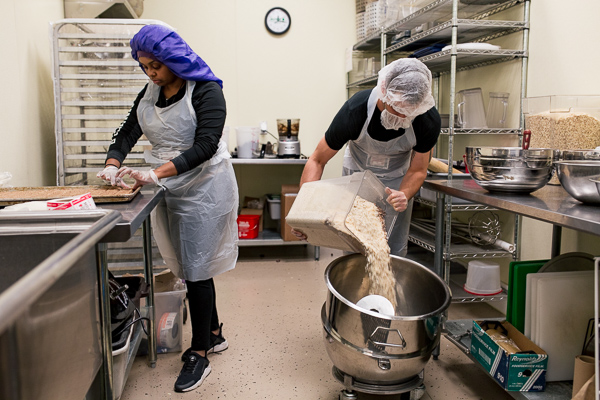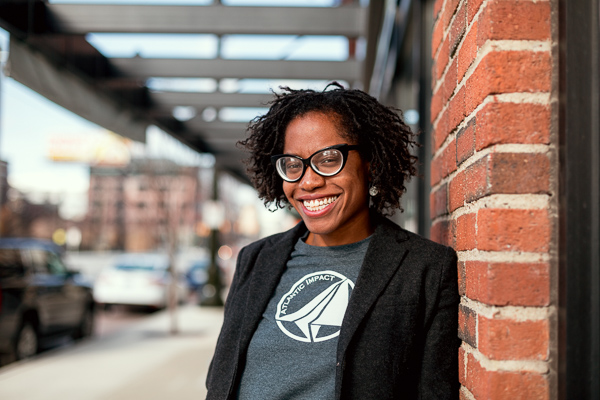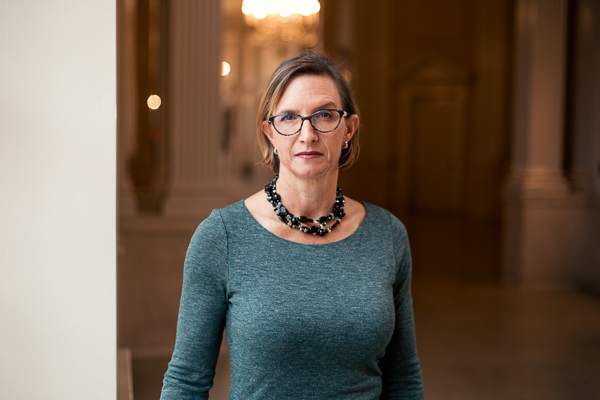Thinking like a boss: Detroit programs empower youth through entrepreneurship
Muna Danish |
Tuesday, December 20, 2016
As a student at Detroit's Cody High School, Hassan Almaleki never knew he wanted to be a chef. All he knew was that he loved food and wanted to learn how to cook for himself.
But after joining Detroit Food Academy (DFA), a youth leadership program founded in 2012 that teaches Detroit youth how to create their own food businesses and launch them, Almaleki found a passion for cooking
—and entrepreneurship. He participated in DFAs after-school program during all four years of high school, and was part of a team of students who created and scaled
Mitten Bites, a brand of all-natural snack bars that are now available in Whole Foods and a growing list of local grocery stores.
Youth entrepreneurship programs like Detroit Food Academy engage youth across the city in hands-on, place-based entrepreneurial training, equipping them to both launch their own businesses and use entrepreneurial thinking to solve problems at school, work, and in their own communities.
Being a part of something bigger
 Takyhai Burns and Jacob Schoenknecht making Mitten Bites
Takyhai Burns and Jacob Schoenknecht making Mitten Bites
DFA engages youth through its after-school, summer, and "small batch" programs, which introduce healthy eating and cooking, business planning, and food product development to the youth who participate. Last year, DFA worked with 250 students across seven high schools in Detroit, and they're looking to expand into three more this year.
"We want to use this engaging space of food to invite our students to build a really tangible idea that makes an impact on their school or neighborhood," says Jennifer Rusciano, executive director of Detroit Food Academy. "Detroit has an obsession with importing talent from other places, but we have amazing students who want to be a part of what's going on—they just need a vote of confidence and the opportunity to make their ideas a reality."
Students who participate in DFA learn skills such as basic math and financial planning, how to cook for themselves, and interpersonal communication. DFA's ultimate goal, however, is building the emotional wellness and self confidence of participants, many of whom have never cooked before, let alone planned a food business concept, or pitched a business idea to a panel of judges.
"DFA changed my view on how to talk to people," says Almaleki, who is now an employee of DFA as well as a culinary arts student at Schoolcraft College. "When I started the program I was a very shy kid. As I went through the program I had to stand in front of people and tell them about my product. Little by little it brought me out of shell."
Almaleki shares that as he continued to participate in DFA, he realized that it was more than just cooking well that drew him to the program, it was about wanting to "be a part of something bigger."
Seeing opportunities in Detroit
While DFA teaches youth concrete skills they can utilize in their daily lives, the program also emphasizes a place-based approach to building a business, where youth feel connected to their communities and excited about the options available to them here in Detroit.
This engagement with Detroit is one of the main goals of Our Town, a youth driven tour guide program founded by Anise Hayes of Atlantic Impact. Hayes created Our Town after working with youth and realizing that many of them, who were born and raised in Detroit, had never seen the city beyond their own neighborhoods. The program, which launched this past summer and is now a yearlong program at two high schools, works with youth ages 16 to 18 to build tours of the city based on their own interests and experiences in Detroit.
"It was actually one of our students at Denby High School who came up with the idea for the program," says Hayes. "We were on a field trip downtown and he had never been there. He asked, 'Why doesn't my neighborhood look like this? Why don't people come and visit where I live?'"
 Anise Hayes, founder of Atlantic Impact
Anise Hayes, founder of Atlantic Impact
The program partnered with Detroit Experience Factory, a nonprofit tour company, to help youth build and lead tours that are both neighborhood-based and focused on themes like art, architecture, and innovation.
Hayes explains that by having youth design and lead tours, they are placed in a position of authority, and consequently feel more empowered to make a difference in Detroit.
"Growing up in the city, I didn't see the good things about Detroit often," says Lerrell Carr, a graduate of Denby High School who participated in the program during its pilot this past summer. "But after learning more about its history and giving tours downtown, it opened my eyes a bit wider. I realized it was actually a major city in the world."
Carr is now a freshman at Ferris State University and sees himself moving back to Detroit after graduating.
As part of the current year-long program, students at Denby High School, which is situated on Detroit's east side, are developing a tour of the west side for their peers. The tour will include visits to the Livernois Avenue of Fashion, Marygrove College, and the University District.
Cultivating entrepreneurial thinking
In addition to providing youth with hands-on experience, another core element of youth entrepreneurship programs is developing an entrepreneurial mindset.
Jumpstart is a two-day program of the Henry Ford Learning Institute, a national education nonprofit based in Dearborn, Michigan. The program utilizes design thinking strategies to empower youth, ages 16 to 21, to build solutions for problems or needs in their communities.
"In school, we tend to give kids the message that there's a right answer and wrong answer," says Deborah Parizek, executive director of JumpStart. "Those outcomes are often defined by somebody else and they have minimal connection to students' lives. Design thinking helps us counter that message."
 Deborah Parizek, executive director of JumpStart
Deborah Parizek, executive director of JumpStart
Throughout the two days of the program, students engage in a process of "human centered design" or design thinking, which emphasizes engaging with potential users or customers of a service or product to understand their needs before defining the problem and developing solutions.
In a pilot with fifteen students from Henry Ford Academy this past September, participants explored the question "How do we ease the transition to college or post secondary learning for high school students?" Through a process of research, interviews, and visiting college campuses, teams developed rough conceptual prototypes for their "user"—a prospective college student.
One group developed a mobile app idea for an 11th grader they called "Worried Wilson," who doesn't want to pay "a ridiculous amount of money" for a college that doesn't provide the resources he needs to succeed. The app provides a customized survey to students, and matches them to a list of colleges that best fit their needs.
While the students in the program learn concrete skills such as interviewing and public speaking, JumpStart's program director Marcus Harris, explains that, "Beyond concrete skills, we want participants to develop the idea of thinking entrepreneurially. Not all of them are going to go out and launch their own venture, but at least they will walk away with creative problem solving skills that they can use not only in their careers but also in their everyday lives."
This article is part of Michigan Nightlight, a series of stories about the programs and people that positively impact the lives of Michigan kids. It is made possible with funding from the W.K. Kellogg Foundation. Read more in the series here.
All photos by Nick Hagen.